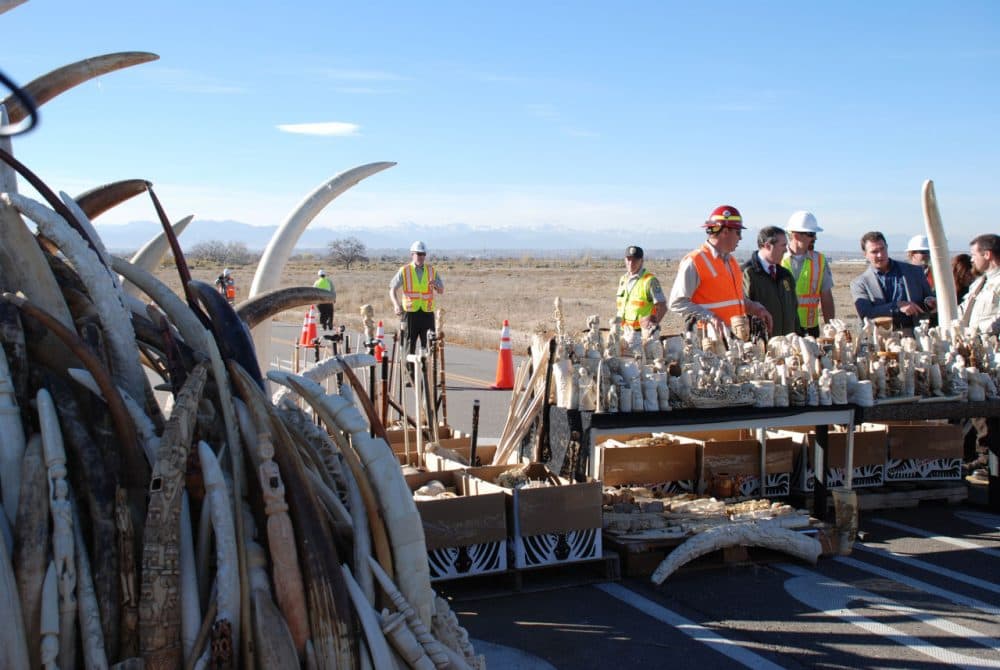Advertisement
Bill To Ban Ivory Sales Arrives At Beacon Hill
Resume
Piano keys and pool balls seem harmless enough, but their source, ivory, has been a point of contention for years. Now, a bill on Beacon Hill wants to ban all ivory trade in the state.
New ivory sales were banned under federal law over a decade ago. Last summer, while in Kenya, President Obama announced his intention to make it even harder to import illegally: "We're proposing a new rule that bans the sale of virtually all ivory across our state lines which will eliminate the market for illegal ivory in the United States."
However, the sale of antique ivory is still permitted in the U.S., and advocates of the ban say those sales can cover up illegal imports.
Guest
Laura Hagen, deputy director of advocacy at the Massachusetts Society for the Prevention of Cruelty to Animals. She tweets @LauraAHagen.
More
The Boston Globe: Massachusetts Sees Brisk Trade In Illicit Ivory
- "That trade, much of it illegal, is doing brisk business in Massachusetts, according to a prominent wildlife organization that conducted a survey this year on ivory sales in the United States. The International Fund for Animal Welfare ranked Boston fourth among US cities in its study of ivory advertised on Craigslist, a popular online marketplace. And nearly all of the ivory items — tusks, jewelry, furniture, and statues — were being offered without the proof of age and origin required for a legal sale."